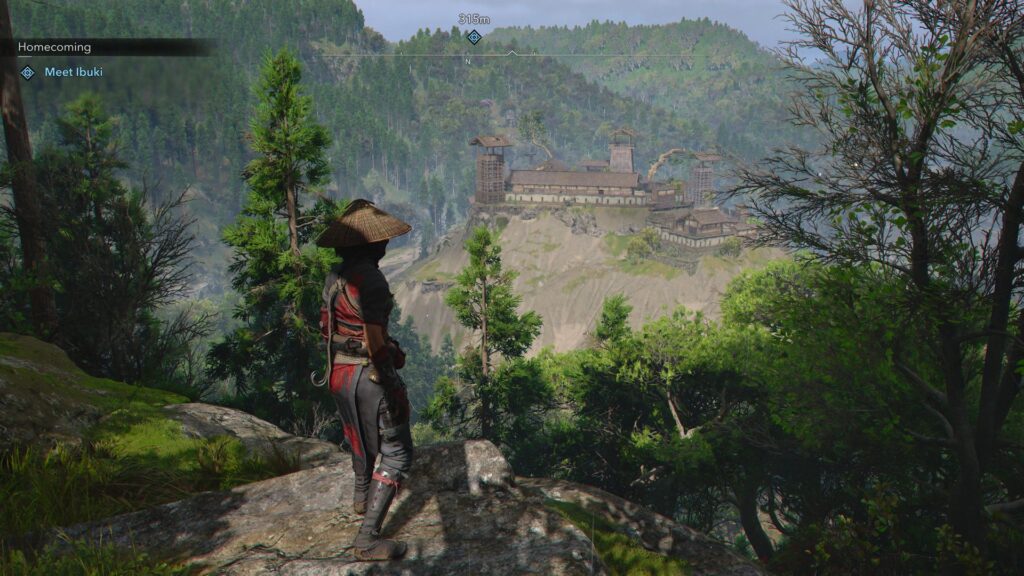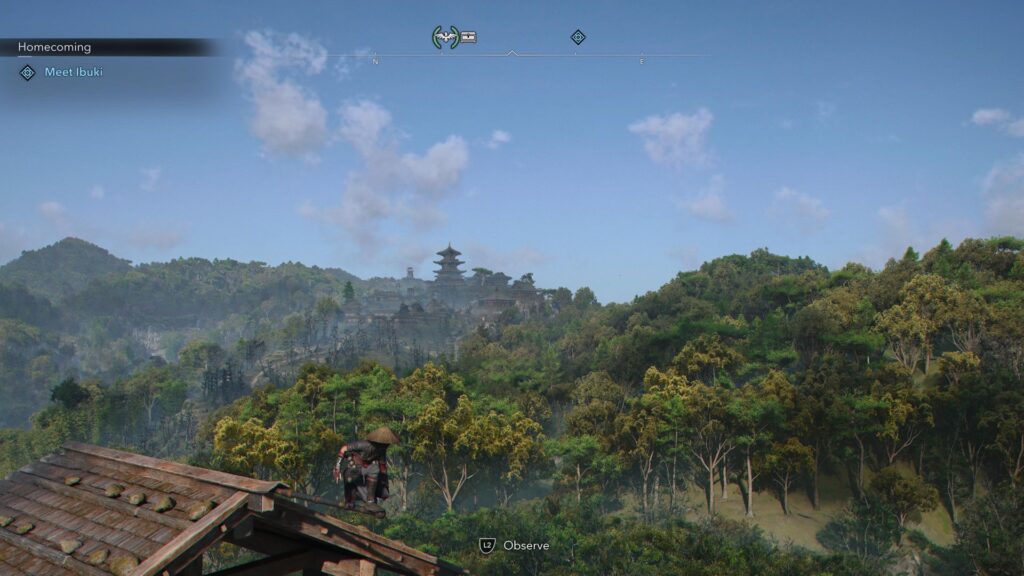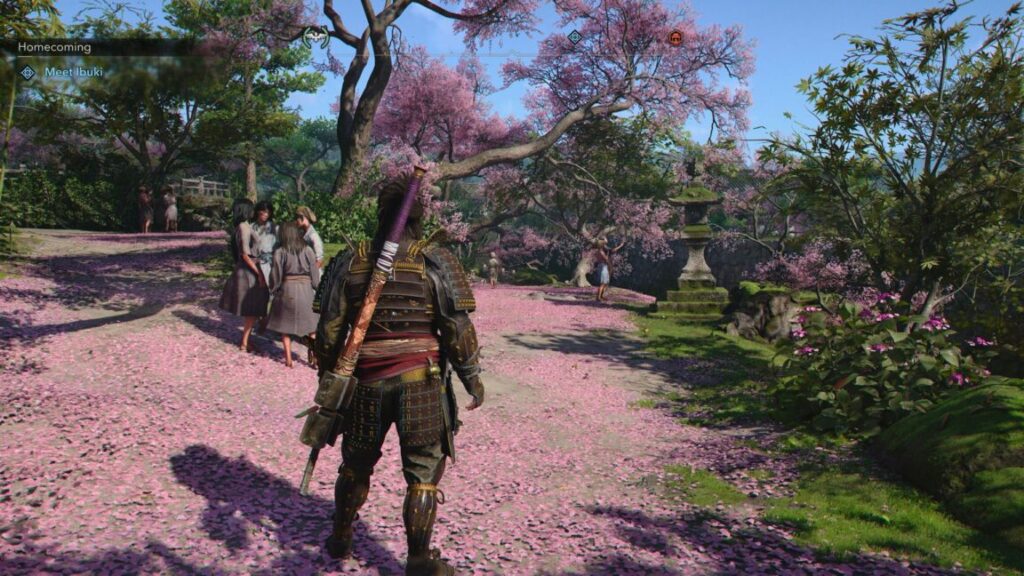Assassin’s Creed Shadows is the dad rock of video games, and I love it
It also proves AAA publishers should be more willing to delay their games.
Assassin’s Creed Shadows refines Ubisoft’s formula, has great graphics, and is a ton of fun. Credit: Samuel Axon
Assassin’s Creed titles are cozy games for me. There’s no more relaxing place to go after a difficult day: historical outdoor museum tours, plus dopamine dispensers, plus slow-paced assassination simulators. The developers of Assassin’s Creed: Shadows seem to understand this need to escape better than ever before.
I’m “only” 40 hours into Shadows (I reckon I’m only about 30 percent through the game), but I already consider it one of the best entries in the franchise’s long history.
I’ve appreciated some past titles’ willingness to experiment and get jazzy with it, but Shadows takes a different tack. It has cherry-picked the best elements from the past decade or so of the franchise and refined them.
So, although the wheel hasn’t been reinvented here, it offers a smoother ride than fans have ever gotten from the series.
That’s a relief, and for once, I have some praise to offer Ubisoft. It has done an excellent job understanding its audience and proven that when in doubt, AAA publishers should feel more comfortable with the idea of delaying a game to focus on quality.
Choosing wisely
Shadows is the latest entry in the 18-year series, and it was developed primarily by a Ubisoft superteam, combining the talents of two flagship studios: Ubisoft Montreal (Assassin’s Creed IV: Black Flag, Assassin’s Creed Origins, Assassin’s Creed Valhalla) and Ubisoft Quebec (Assassin’s Creed Syndicate, Assassin’s Creed Odyssey, Immortals Fenyx Rising).
After a mediocre entry in 2023’s Assassin’s Creed Mirage—which began as Valhalla DLC and was developed by B-team Ubisoft Bordeaux—Shadows is an all-in, massive budget monstrosity led by the very Aist of teams.
The game comes after a trilogy of games that many fans call the ancient trilogy (Origins, Odyssey, and Valhalla—with Mirage tightly connected), which was pretty divisive.
Peaking with Odyssey, the ancient trilogy departed from classic Assassin’s Creed gameplay in significant ways. For the most part, cornerstones like social stealth, modern-day framing, and primarily urban environments were abandoned in favor of what could be reasonably described as “The Witcher 3 lite”—vast, open-world RPG gameplay with detailed character customization and gear systems, branching dialogue options, and lots of time spent wandering the wilderness instead of cities.

As in Odyssey, you spend most of your time in Shadows exploring the wilds. Credit: Samuel Axon
I loved that shift, as I felt the old formula had grown stale over a decade of annual releases. Many other longtime fans did not agree. So in the weeks leading up to Shadows‘ launch, Ubisoft was in a tough spot: please the old-school fans or fans of the ancient trilogy. The publisher tried to please both at once with Valhalla but ended up not really making anyone happy, and it tried a retro throwback with Mirage, which was well-received by a dedicated cohort, but that didn’t make many waves outside that OG community.
During development, a Ubisoft lead publicly assured fans that Shadows would be a big departure from Odyssey, seemingly letting folks know which fanbase the game was meant to please. That’s why I was surprised when Shadows actually came out and was… a lot like Odyssey—more like Odyssey than any other game in the franchise, in fact.
Detailed gear stats and synergies are back, meaning this game is clearly an RPG… Samuel Axon
Similar to Odyssey, Shadows has deep character progression, gear, and RPG systems. It is also far more focused on the countryside than on urban gameplay and has no social stealth. It has branching dialogue (anemic though that feature may be) and plays like a modernization of The Witcher III: Wild Hunt.
Yet it seems this time around, most players are happy. What gives?
Well, Shadows exhibits a level of polish and handcrafted care that many Odyssey detractors felt was lacking. In other words, the game is so slick and fun to play, it’s hard to dislike it just because it’s not exactly what you would have done had you been in charge of picking the next direction for the franchise.
Part of that comes from learning lessons from the specific complaints that even Odyssey‘s biggest fans had about that game, but part of it can be attributed to the fact that Ubisoft did something uncharacteristic this time around: It delayed an Assassin’s Creed game for months to make sure the team could nail it.
It’s OK to delay
Last fall, Ubisoft published Star Wars Outlaws, which was basically Assassin’s Creed set in the Star Wars universe. You’d think that would be a recipe for success, but the game landed with a thud. The critical reception was lukewarm, and gaming communities bounced off it quickly. And while it sold well by most single-player games’ standards, it didn’t sell well enough to justify its huge budget or to please either Disney or Ubisoft’s bean counters.
I played Outlaws a little bit, but I, too, dropped it after a short time. The stealth sequences were frustrating, its design decisions didn’t seem very well-thought out, and it wasn’t that fun to play.
Since I wasn’t alone in that impression, Ubisoft looked at Shadows (which was due to launch mere weeks later) and panicked. Was the studio on the right track? It made a fateful decision: delay Shadows for months, well beyond the quarter, to make sure it wouldn’t disappoint as much as Outlaws did.
I’m not privy to the inside discussions about that decision, but given that the business was surely counting on Shadows to deliver for the all-important holiday quarter and that Ubisoft had never delayed an Assassin’s Creed title by more than a few weeks before, it probably wasn’t an easy one.
It’s hard to imagine it was the wrong one, though. Like I said, Shadows might be the most polished and consistently fun Assassin’s Creed game ever made.

No expense was spared with this game, and it delivers on polish, too. Credit: Samuel Axon
In an industry where quarterly profits are everything and building quality experiences for players or preserving the mental health and financial stability of employees are more in the “it’s nice when it happens” category, I feel it’s important to recognize when a company makes a better choice.
I don’t know what Ubisoft developers’ internal experiences were, but I sincerely hope the extra time allowed them to both be happier with their work and their work-life balance. (If you’re reading this and you work at Ubisoft and have insight, email me via my author page here. I want to know.)
In any case, there’s no question that players got a superior product because of the decision to delay the game. I can think of many times when players got angry at publishers for delaying games, but they shouldn’t be. When a game gets delayed, that’s not necessarily a bad sign. The more time the game spends in the oven, the better it’s going to be. Players should welcome that.
So, too, should business leaders at these publishers. Let Shadows be an example: Getting it right is worth it.
More dad rock, less prestige TV
Of course, despite this game’s positive reception among many fans, Assassin’s Creed in general is often reviled by some critics and gamers. Sure, there’s a reasonable and informed argument to be made that its big-budget excess, rampant commercialism, and formulaic checkbox-checking exemplify everything wrong with the AAA gaming industry right now.
And certainly, there have been entries in the franchise’s long history that lend ammunition to those criticisms. But since Shadows is good, this is an ideal time to discuss why the franchise (and this entry in particular) deserves more credit than it sometimes gets.
Let’s use a pop culture analogy.
In its current era, Assassin’s Creed is like the video game equivalent of the bands U2 or Tool. People call those “dad rock.” Taking a cue from those folks, I call Shadows and other titles like it (Horizon Forbidden West, Starfield) “dad games.”
While the kids are out there seeking fame through competitive prowess and streaming in Valorant and Fortnite or building chaotic metaverses in Roblox and—well, also Fortnite—games like Shadows are meant to appeal to a different sensibility. It’s one that had its heyday in the 2000s and early 2010s, before the landscape shifted.
We’re talking single-player games, cutting-edge graphics showcases, and giant maps full of satisfying checklists.
In a time when all the biggest games are multiplayer games-as-a-service, when many people are questioning whether graphics are advancing rapidly enough to make them a selling point on their own, and when checklist design is maligned by critics in favor of more holistic ideas, Shadows represents an era that may soon by a bygone one.
So, yes, given the increasingly archaic sensibility in which it’s rooted and the current age of people for whom that era was prime gaming time, the core audience for Shadows probably now includes a whole lot of dads and moms.
The graphics are simply awesome. Samuel Axon
There’s a time and a place for pushing the envelope or experimenting, but media that deftly treads comfortable ground doesn’t get enough appreciation.
Around the time Ubisoft went all-in on this formula with Odyssey and Valhalla, lots of people sneered, saying it was like watered-down The Witcher 3 or Red Dead Redemption 2. Those games from CD Projekt Red and Rockstar Games moved things forward, while Ubisoft’s games seemed content to stay in proven territory.
Those people tended to look at this from a business point of view: Woe is an industry that avoids bold and challenging choices for fear of losing an investment. But playing it safe can be a good experience for players, and not just because it allows developers to deliver a refined product.
Safety is the point. Yeah, I appreciate something that pushes the envelope in production values and storytelling. If The Witcher 3 and RDR2 were TV shows, we’d call them “prestige TV”—a type of show that’s all about expanding and building on what television can be, with a focus on critical acclaim and cultural capital.
I, too, enjoy prestige shows like HBO’s The White Lotus. But sometimes I have to actually work on getting myself in the mood to watch a show like that. When I’ve had a particularly draining day, I don’t want challenging entertainment. That’s when it’s time to turn on Parks and Recreation or Star Trek: The Next Generation—unchallenging or nostalgic programming that lets me zone out in my comfort zone for a while.
That’s what Assassin’s Creed has been for about a decade now—comfort gaming for a certain audience. Ubisoft knows that audience well, and the game is all the more effective because the studios that made it were given the time to fine-tune every part of it for that audience.
Assassin’s Creed Shadows isn’t groundbreaking, and that’s OK, because it’s a hundred hours of fun and relaxation. It’s definitely not prestige gaming. It’s dad gaming: comfortable, refined, a little corny, but satisfying. If that’s what you crave with your limited free time, it’s worth a try.
Samuel Axon is a senior editor at Ars Technica, where he is the editorial director for tech and gaming coverage. He covers AI, software development, gaming, entertainment, and mixed reality. He has been writing about gaming and technology for nearly two decades at Engadget, PC World, Mashable, Vice, Polygon, Wired, and others. He previously ran a marketing and PR agency in the gaming industry, led editorial for the TV network CBS, and worked on social media marketing strategy for Samsung Mobile at the creative agency SPCSHP. He also is an independent software and game developer for iOS, Windows, and other platforms, and he is a graduate of DePaul University, where he studied interactive media and software development.
Assassin’s Creed Shadows is the dad rock of video games, and I love it Read More »

